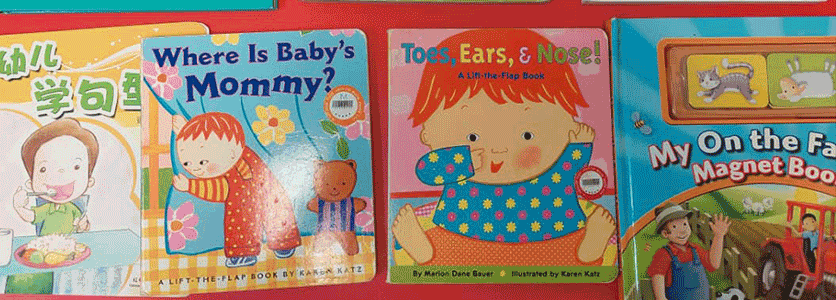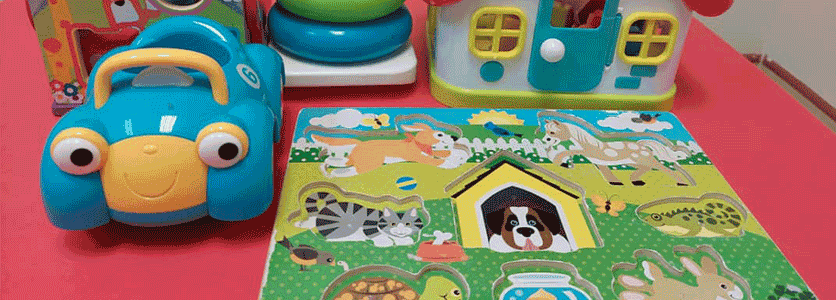“Why isn’t my child talking yet?” is a question that voices panic and concern. When other children can already hold simple conversation with mummy and daddy, you struggle to get any words from your little one. Before we get into the details of speech delay in children, let’s take a look at the basics.
The definition of speech and language
Speech is how we say sounds and words, using the mouth, lips and tongue. It includes articulation. For example, we need to be able to say the “r” sound to say “rabbit” instead of “wabbit.” Using our vocal folds and breath, we also use the frequency of our voice to produce sounds that are loud, soft, high-pitched or low-pitched.
Fluency matters too. This has to do with the rhythm of our speech. Stuttering is an example of what can happen when you have a problem with speech rhythm.
Most importantly is the language we speak to refer to the words we use, and how we use them to share ideas. Language addresses what words mean. Some words have more than one meaning. For example, ‘star’ can be a bright object in the sky or someone famous. Language also allows new words such as ‘friend’, ‘friendly’ or ‘unfriendly’ with each on denoting different meaning. It is how we put words together. For example, in English we say, “Lisa walked to the new store,” instead of, “Lisa, walk, store, new,”.

Common speech milestones of a child
Before a child reaches one year old, he should be able to coo and babble. It is also normal for a toddler to mimic different sounds and words he hears, much to the amusement of parents who have no idea yet of what is being said. The child would also use gestures to communicate such as waving and pointing. When you call his name, he would turn around to look at you. He would understand names of common items like ‘ball’, ‘milk or ‘shoe’.
Between one to two years old, toddlers should be able to follow simple instructions, identify a few body parts, use single words consistently, starts using some two-word phrases like ‘no milk’ or ‘mommy go’. They can also ask simple questions such as ‘what is that?’. When they reach two to three years old, they can follow two-step instructions like ‘take the book and give it to daddy’. They would also understand concepts. They use two- to three-word utterances like ‘daddy shoe blue’. They understand simple questions.
At three to four years, they can identify colors. They can also use four to five-word utterances. They can answer ‘where’ questions. Most importantly, their speech is easily understood by listeners who are unfamiliar with the child’s speech. Upon reaching four years and above, they can follow longer and more complex instructions. They can even tell a simple story, and use conjunctions such as ‘and’, ‘but’, ‘so’, in order to connect phrases and sentences.
Red flags for speech and language delay
Speech and language delay is when a child is unable to reach speech and language milestones as expected. If you refer to the milestones mentioned above, you can see if your child’s language milestone development tallies. There are certain occurrences that should raise an alarm for concern, other than not showing an interest in communicating.
- No babbling by 12 months.
- Does not respond to his/her name by 12 months.
- Does not use gestures like waving ‘bye bye’ or shaking head for ‘no’ by 12 months.
- Does not point to objects or pictures when asked to, by 17 months.
- No first words by 18 months.
- Does not understand basic commands by 18 months.
- No word combinations by 24 months.
Causes of speech delay
There are several causes for speech delay in children. They can be related to Global Developmental Delay where a child takes a longer time to reach certain development milestones compared to other children their age. This may include learning to walk or talk, movement skills, learning new things and interacting with others, socially and emotionally. If the child has Autism Spectrum Disorder, Down Syndrome or Cerebral Palsy, or hearing impairment, he or she would most likely experience a delay in speech development.
Another reason for speech delay is excessive screen time. Long hours of being on the phone or tablet tend to create a breakdown in two-way communication resulting in poor parent-child interaction. The child may also imitate cartoon-like speech, prefers using gestures rather than talking, and seemingly obsessed with visual lightings and sounds.
Stimulate language in your child
Experts use four types of language stimulation to help with speech delay. Here are some examples for you to emulate:
Self-talk
Whenever you are engaged in an activity, describe your actions by using short and simple sentences. For example, “Mummy is cooking.” or “Daddy is eating biscuits.”
Parallel Talk
This is a reverse of the above where you describe the actions your child is doing. Likewise, use short, simple and easy-to-understand sentences, such as “You are kicking a ball.”, or “Aishah is drinking milk.”.
Repetition
Repeat what your child says. For example, when your child points to a car, you can reiterate by saying, “Yes, that is a car.” Or, if he points to a bird in the sky, you can say, “Yes, that is a bird.”.
Extension
Build your child’s vocabulary by adding on suitable words to what he or she says. For example, when your child says, ‘teeth’, you can add on by saying “Brush teeth.” Or if he or she says ‘water’, you can add on “You are drinking water.”.

Seeking the help of a speech therapist
The job of a speech therapist is to provide clinical services for speech, language, communication, feeding and swallowing problems. The experts use play activities during therapy which is literally an acronym for:
P – People Skills
People skills are about requesting, asking permission, taking turns, sharing, negotiating, and discussing.
L – Language Skills
These consist of new vocabulary and concepts, as well as sequence and narrative skills, and the ability to follow simple to complex commands.
A – Attention
This requires attention to details and information; hence it focuses on listening skills, following instructions and rules.
Y – Youthful Imagination
Children’s brains are stimulated to create endless ideas and stories.
This article first appeared in Borneo Post, 9 April 2023.
Share:
Was this article helpful?
Share:
Was this article helpful?
Health Packages
Elevate your health with tailored health packages at Columbia Asia Hospital. Take charge of your health journey today.

